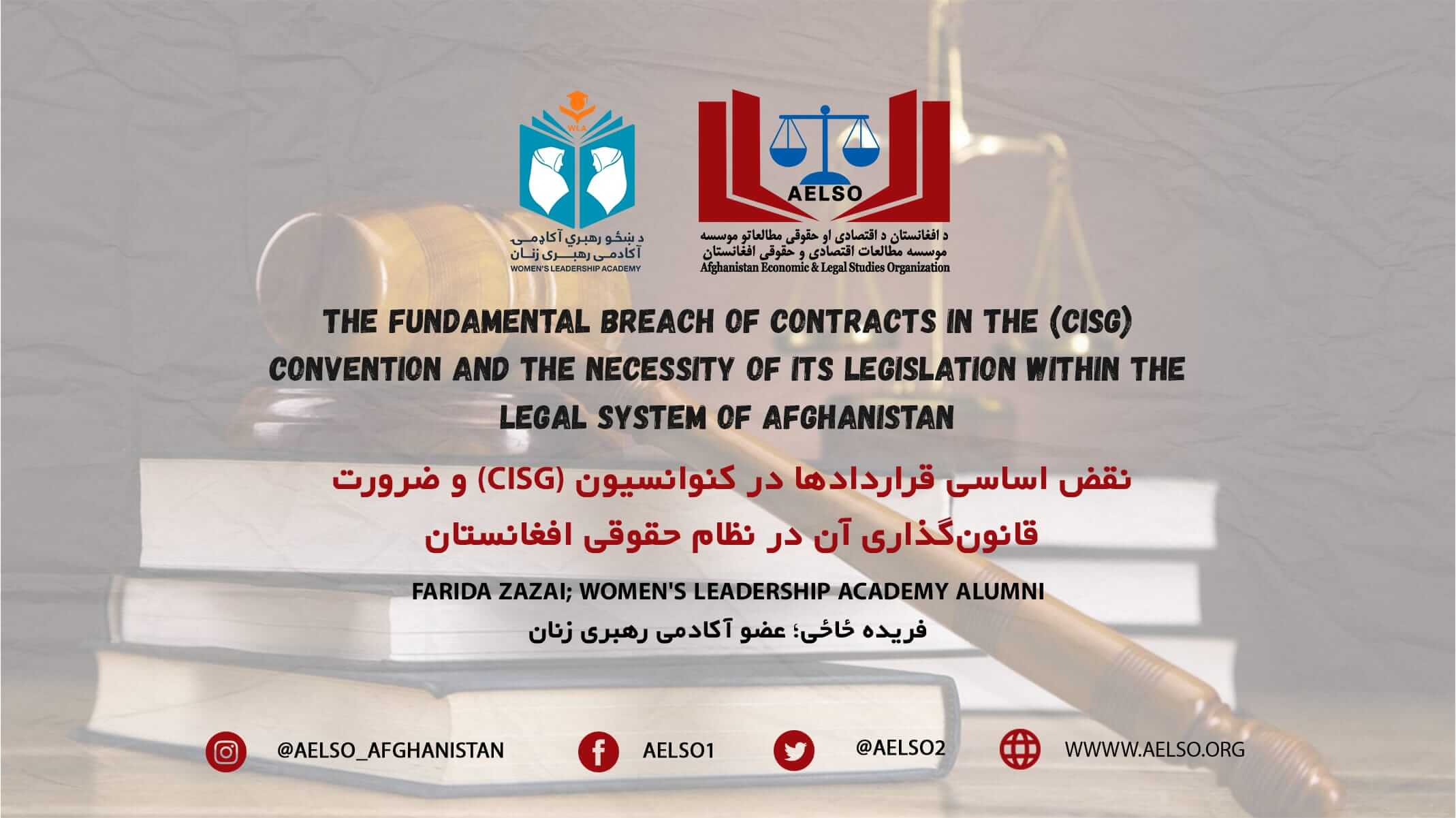
The Fundamental Breach of Contracts in the (CISG) Convention and the Necessity of its Legislation within the Legal System of Afghanistan
The United Nations Convention on Contracts for the International Sale of Goods (CISG), adopted in Vienna in 1980, is one of the most important documents aimed at harmonizing the substantive rights in the field of international trade. Accession to the convention necessitates a thorough examination of its functions and characteristics. Over the course of six weeks, two aspects of the discussed convention, which were deemed as fundamental breaches and potential violations, have been scrutinized separately. Furthermore, the convention leads to the enhancement of legal systems, reduction of costs, increase in trade, and economic development, consequently leading to the improvement of public welfare. Considering these outcomes, Afghanistan’s accession to the convention is recommended.
The research methodology employed in this article is analytical-inductive, conducted through library research to substantiate the theory of fundamental breach. The thesis is structured into three sections: the first section discusses definitions and generalities regarding fundamental breach and its examination in the legal system of Afghanistan, the second section focuses on the examination of the concept of potential violation in the legal system of Afghanistan, and the third section delves into the rationale behind Afghanistan’s accession to the CISG.
The primary obstacles encountered in this research were the lack of resources (books and articles), especially within the realm of Afghanistan’s legal system. Therefore, I have solely relied on reputable sources in article format for this research.
Keywords: fundamental breach, potential violation, law on contracts for the international sale of goods, legal system of Afghanistan, accession to CISG